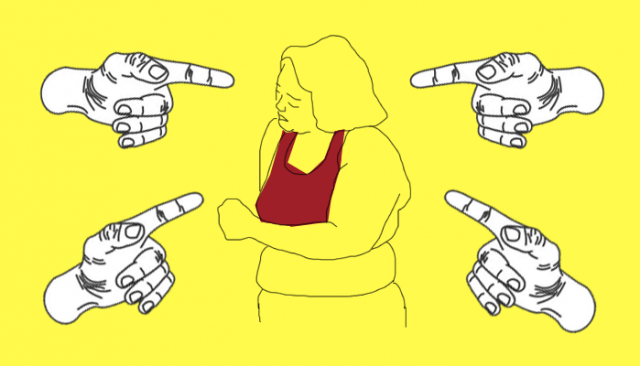
Body positivity has been advocated by lots of celebrities, but one personality stood out when he announced he is “100% in favor of fat-shaming.”
Franco Mabanta, former senator Bongbong Marcos’ social media strategist, wrote on Facebook that everything would be better if overweight people were “constantly told to get off their f***ing couches and stop being little b**ches.”
He shared that he is aware of “political correctness” and people’s expected ire against his statement.
Mabanta accompanied his status with a picture of ESPN Philippines reporter Thistle Guevara in a bikini.
He has already deleted his post but people were not having it.
Franco Mabanta fat-shaming and the sense of superiority is everything wrong in our society today.
If you have to put another down just to feel good about yourself, I feel so bad for you man. It means you were never better.
— Kurt Paolo Sevillano (@kurtsevillano) April 13, 2018
So Franco Mabanta took down the post. But in the comment section, after he shared his friend’s rebuttal, he clarified that he should have said “lazy shaming” instead.
Well, Franco, know what’s lazy? Running your mouth without doing research on the various causes of weight gain.
— Alfonso Manalastas (@alfonsaurus_rex) April 13, 2018
This pisses me off because I know a lot of people who work double to control their weight, even through extreme, unhealthy measures but still happen to be fat. These people fight tooth and nail only to end up even more unhealthy because of bullies like Franco.
— Alfonso Manalastas (@alfonsaurus_rex) April 13, 2018
Food addiction is real
Mabanta might have meant well but his words have sliced open wounds about the reality of fat shaming.
Jennie Kramer, director of Metro Behavioral Health Eating Disorders Centers, said there are people who consider fat shaming as “socially acceptable” and this can be harmful to those who struggle with their weight.
She wrote on Huffington Post: “If you’re about to argue that this particular type of discrimination is different because being overweight or obese is a sign of poor character — of sloth or laziness or gluttony, for instance — then you need to know that this is simply not the case.”

According to Kramer, there are people who struggle with food addiction, which is as real as alcohol and drug addiction.
She wrote, “For them, eating activates the region of the brain that is associated with rewards and cravings but, of course, those with food addiction can’t just not eat. Instead they have to change their relationship with food.”
There are those who find it difficult to refrain from giving in to their cravings, she noted.
It triggers stress eating
Professor Rebecca Pearl of the University of Pennsylvania believes fat shaming drives people to eat more instead of motivating them.
Pearl explained to The Telegraph: “There is a common misconception that stigma might help motivate individuals with obesity to lose weight and improve their health.”
“We are finding it has quite the opposite effect. When people feel shamed because of their weight, they are more likely to avoid exercise and consume more calories to cope with this stress,” Pearl disclosed. — Art by Uela Badayos





